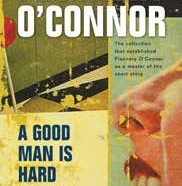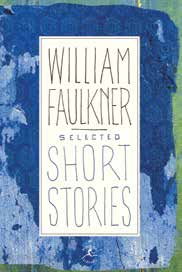
“Young Goodman Brown”
by Nathaniel Hawthorne
Hawthorne’s perverse sense of humor gives this allegory of universal guilt a distinctively comic undertone.
“Bartleby the Scrivener”
by Herman Melville
Melville’s Bartleby, the lawyer’s scribe who practices a ferocious passive resistance, has taught me one of life’s most useful phrases: “I would prefer not to.”
 “The Old People”
“The Old People”
by William Faulkner
In this story, which anticipates the much longer and more complex “The Bear,” Faulkner introduces one of his major themes: the multiple ways in which the past inhabits the present.
“Good Country People”
and “The Displaced Person”
by Flannery O’Connor
In these two stories, O’Connor uses her slam-bang irony to expose the kinds of false pride that underlie truly disastrous prejudices.
“A Memory” by Eudora Welty
Flannery O’Connor once said,
“If nothing happens, there’s no story.” In Welty’s “A Memory,” something memorable does happen, but only in the divided imagination of the narrator.
Perhaps Cheever’s most brilliant story, “The Swimmer” takes
place in a recognizable suburban world that moves into nightmare as former master of the universe Neddy Merrill navigates the swimming pools of his neighbors and revisits his self-destroyed life.
“Calling” by Richard Ford
In this story that truly haunts, the narrator recalls his terminal reunion, decades before, with his estranged father, an upper-class New Orleanian with the kind of secrets no child would want to uncover.




